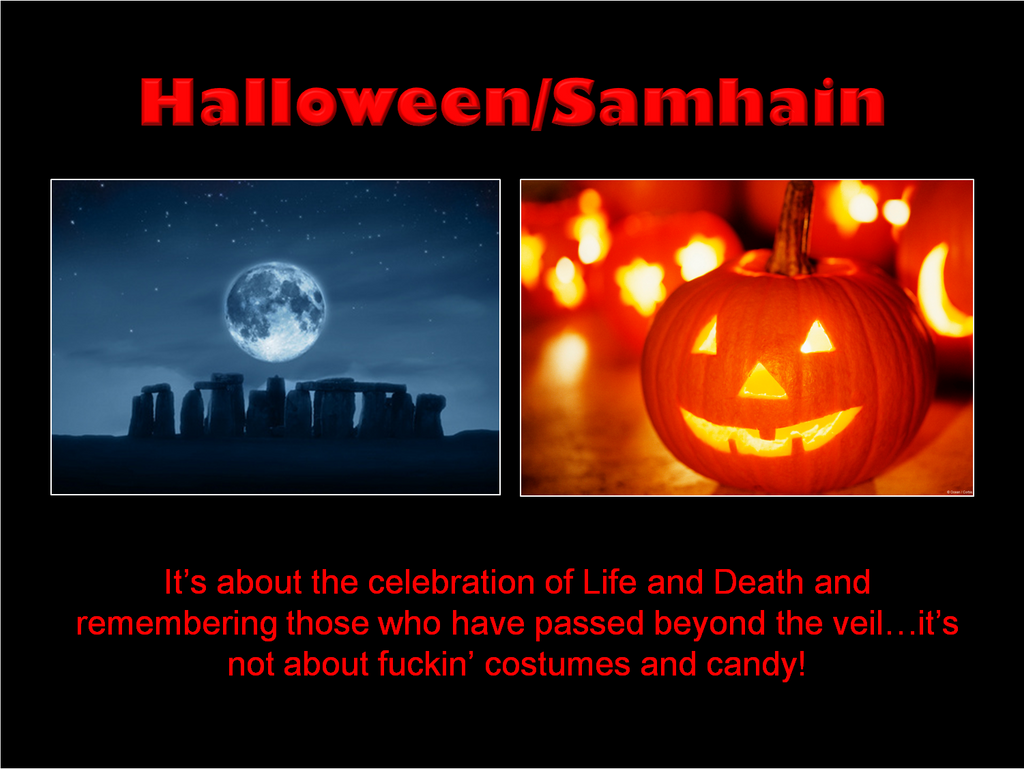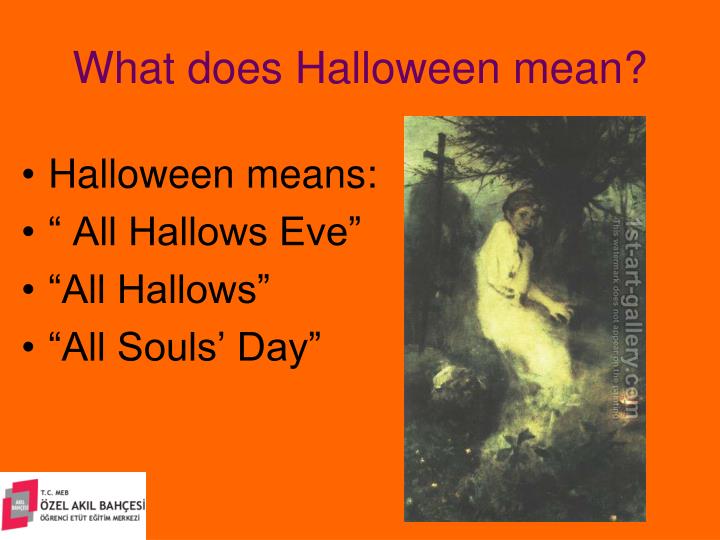Gallery
Photos from events, contest for the best costume, videos from master classes.











Halloween is a holiday that traces back to the ancient Celtic festival of Samhain, when people wore costumes and lit bonfires to ward off ghosts. Learn how Halloween evolved over time, how it spread to America and how it is celebrated today. Halloween is a celebration on 31 October, the eve of All Hallows' Day, with roots in Christian and Celtic festivals. It involves costumes, trick-or-treating, jack-o'-lanterns, bonfires, and other activities related to the supernatural and the dead. Halloween had its origins in the festival of Samhain among the Celts of ancient Britain and Ireland. On the day corresponding to November 1 on contemporary calendars, the new year was believed to begin. That date was considered the beginning of the winter period, the date on which the herds were returned from pasture and land tenures were renewed. Halloween is a secular holiday that traces back to the ancient Celtic festival of Samhain, when people dressed in costumes and lit bonfires to ward off spirits. Learn how Halloween evolved over the centuries and became popular in different regions and cultures. According to Kelly, the name is a combination of the Scottish words “hallow,” which loosely translates into “saint” or “holy person,” and “een,” which means “evening.”. In The meaning of Halloween today is far removed from its darker origins in ancient Britain, Ireland and northern France—when people believed it was a night when the dead literally returned to the Halloween is a celebration of all things spooky that has roots in ancient Celtic and Christian festivals. Learn about its history, etymology, and how it relates to Samhain, All Saints' Day, and the Day of the Dead. Ireland. Barmbrack, a fruitcake, is used as part of a fortune telling game in Ireland.Muslin-wrapped treats are baked inside. If a ring is found, it means that the person will soon be wed; a piece Learn how Halloween evolved from ancient Celtic rituals to a global secular holiday. Discover the origins of costumes, bonfires, jack-o'-lanterns, and All Hallows' Eve. Halloween evolved from the ancient Celtic holiday of Samhain. Over the centuries, Halloween transitioned from a pagan ritual to a day of parties, costumes, jack-o-lanterns and trick-or-treating Halloween wasn't always about carving pumpkins and collecting candy. Here's the scoop on the ancient origins of this popular (and super spooky) holiday. Halloween definition: the evening of October 31; the eve of All Saints' Day; Allhallows Eve. See examples of HALLOWEEN used in a sentence. While on another, Halloween contains sinister influences and promotes behaviors that present troubling realities for families of all backgrounds. So, let’s explore a few more key questions about Halloween. Questions about Halloween What Does Halloween Mean? In linguistic terms, Halloween is simply a contraction of “All Hallows” and While Bible does not specifically mention Halloween, as the holiday originated long after the Scriptures were written. However, several verses provide guidance on related themes, such as avoiding darkness, spiritual discernment , and engaging with others in love and truth. Historical Background . A few of today's popular celebrations associated with Halloween have pagan roots stemming from the ancient Celtic festival, Samhain.This harvest festival of the Druids ushered in the New Year, beginning on the evening of October 31 with the lighting of bonfires and offering of sacrifices. Samhain is a pagan religious festival originating from an ancient Celtic spiritual tradition. In modern times, Samhain (a Gaelic word pronounced “sow‑win”) is usually celebrated from October What is the meaning of Halloween? The current English name Halloween traces back to medieval Christianity. The word hallow is derived from the Middle and Old English words for holy. As a noun, it can also mean saint. In those days, the Christian holiday we know as All Saints' Day was called All Hallows' Day, and the day before, when an evening While the ghosts of today’s Halloween are often portrayed as spooky and eerie, in ancient Celtic times, they were much friendlier. This is because All Hallows’ Eve, the holiday from which Halloween comes and upon which it is based, supposedly made it possible for the deceased to walk the earth – including dear friends and family. Carving pumpkins, trick-or-treating, and wearing scary costumes are some of the time-honored traditions of Halloween. Yet, the Halloween holiday has its roots in the ancient Celtic festival of Samhain (a Gaelic word pronounced "SAH-win"), a pagan religious celebration to welcome the harvest at the end of summer, when people would light bonfires and wear costumes to ward off ghosts. The meaning of HALLOWEEN is October 31 observed especially with dressing up in disguise, trick-or-treating, and displaying jack-o'-lanterns during the evening.
Articles and news, personal stories, interviews with experts.
Photos from events, contest for the best costume, videos from master classes.










